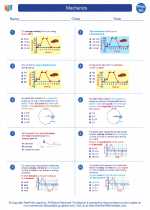Genetic Diversity
Genetic diversity refers to the variety of genes and genotypes within a population or a species. It is a measure of the genetic variation present in a population or among different populations of a species. Genetic diversity is crucial for the long-term survival and adaptability of a species, as it provides the raw material for evolution by natural selection.
Factors Affecting Genetic Diversity
Genetic diversity can be influenced by several factors, including:
- Mutation: Random changes in the DNA sequence that can introduce new genetic variants into a population.
- Gene flow: The movement of genes between populations through migration and interbreeding.
- Genetic drift: Random changes in gene frequencies that occur in small populations due to chance events.
- Natural selection: The differential survival and reproduction of individuals with certain genetic traits, leading to changes in the frequency of those traits within a population over time.
Importance of Genetic Diversity
Genetic diversity is important for several reasons:
- It allows populations to adapt to changing environmental conditions.
- It reduces the risk of inbreeding and the expression of harmful genetic mutations.
- It provides resilience against diseases and parasites.
- It is essential for the breeding of new crop varieties and the development of new drugs.
Measuring Genetic Diversity
Genetic diversity can be measured at the molecular level using techniques such as DNA sequencing, polymerase chain reaction (PCR), and gel electrophoresis. It can also be assessed at the population level by studying traits such as phenotypic variation, allele frequencies, and heterozygosity.
Study Guide
Here are some key points to remember when studying genetic diversity:
- Understand the factors that contribute to genetic diversity, including mutation, gene flow, genetic drift, and natural selection.
- Be able to explain the importance of genetic diversity for the long-term survival and adaptability of a species.
- Learn how genetic diversity can be measured at both the molecular and population levels.
- Be familiar with examples of how genetic diversity has been important in agriculture, medicine, and conservation.
- Practice analyzing and interpreting data related to genetic diversity, such as allele frequencies and population genetics.
By understanding genetic diversity and its importance, you can appreciate the role it plays in the evolution and sustainability of life on Earth.
.


